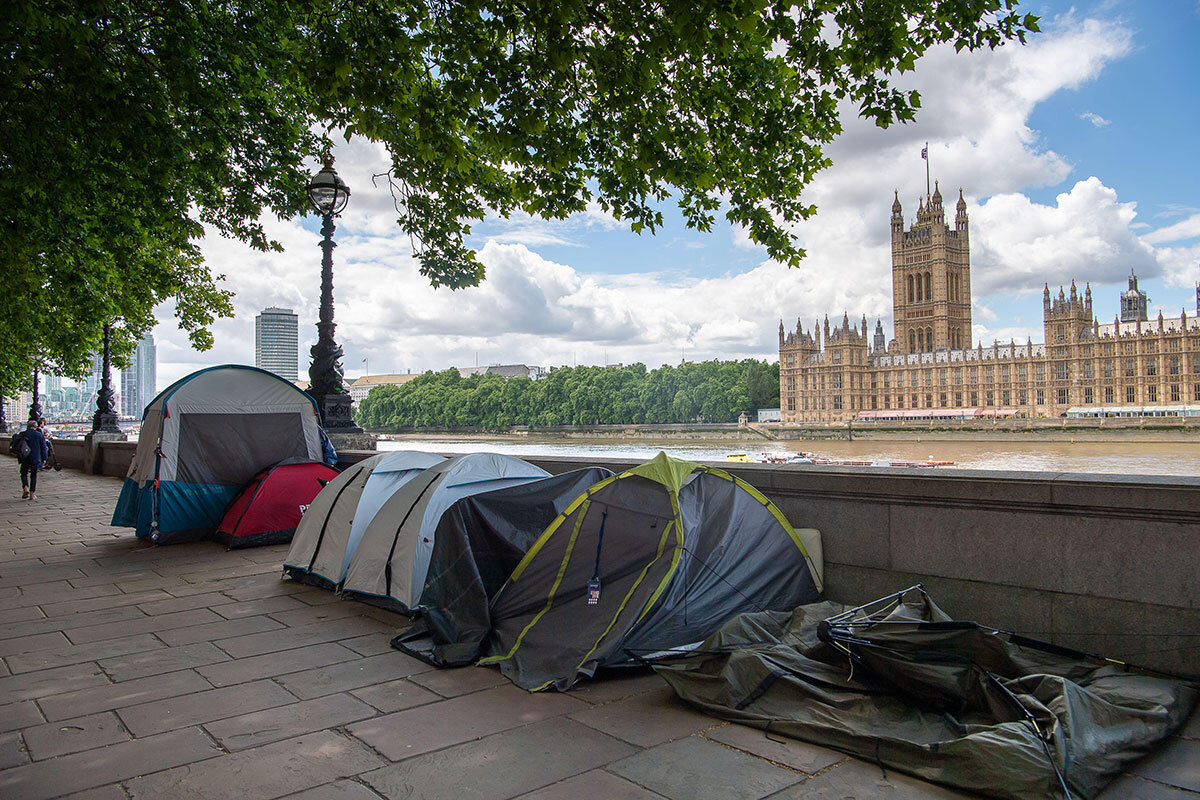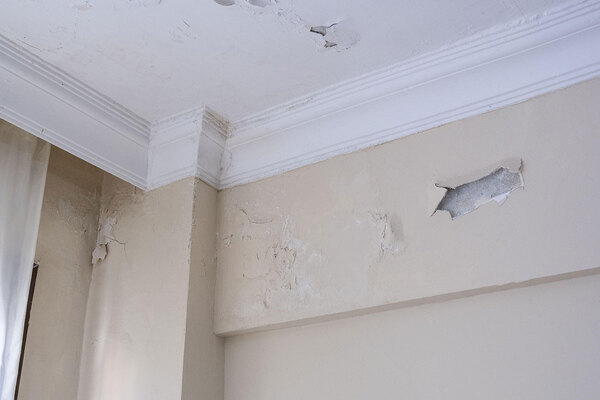You are viewing 1 of your 1 free articles
The Week in Housing: mayoral candidates scrap over housing policy as homelessness figures continue to break records
The Week in Housing is our weekly newsletter, rounding up the most important headlines for housing professionals. Sign up below to get it direct to your inbox every Friday
Good afternoon.
Inside Housing has been taking a keen interest of late in the role of regional and metro mayors and their role in tackling the housing crisis.
High-profile incumbent mayor Andy Street and his main rival have been tussling over who will build the most homes for social rent.
Mr Street explained how the West Midlands devolution deal, which secured for the first-time access to money under the government’s Affordable Housing Programme, will help deliver more social housing across the region.
Trying to unseat Mr Street is Richard Parker. His manifesto promise is to build 2,000 social rent homes a year by 2028 (300 more than Mr Street’s pledge of 1,700). He said this will add up to 20,000 in total by the end of the decade.
In London, Sadiq Khan made a number of other pledges in the run-up to the election on Thursday. These included plans to build 40,000 council homes in London, end rough sleeping by 2030 and deliver 6,000 new rental homes across the capital, in which rents are capped based on local salaries.
He also pledged to use new ‘Land Assembly Zones’ to designate new areas where housing density can be increased, backed up by compulsory purchase powers where needed.
Mr Khan did come under some criticism this week from leasehold campaigners who pointed out that he had failed to deliver his last election pledge to introduce a commonhold pilot scheme on Greater London Authority-owned land.
In response, he defended his commitment to reforming leasehold if re-elected as mayor.
Campaigners also set up a ‘tent city’ outside London’s City Hall to demand that mayoral candidates commit to social housing investment.
With votes still being counted and regardless of who wins, it would be at best absurd, or at worst delusional, if the housing crisis was not the first thing on every new or incumbent politician’s to-do list.
Some mayoral candidates do seem oblivious to the scale of what is going on. They need to look no further than the record-breaking figures for both homeless households and children living in temporary accommodation.
The quarterly homelessness statistics for England revealed there were 112,660 homeless households living in temporary accommodation on 31 December 2023, an increase of 12.1% from the previous year.
In addition, there were 145,800 homeless children living in temporary accommodation in December 2023, the highest ever recorded and up 15% on last year.
The number of children living in temporary accommodation has doubled in under 12 years, increasing from 70,090 in the first quarter of 2012 to 145,800.
One council that seems to be having a good go at keeping its use of temporary accommodation down by focusing on prevention is in north London. Barnet Council’s ALMO saw only a 6% increase in the number of temporary accommodation placements in 2023, despite a 51% increase in housing applications.
Barnet Homes’ mitigation measures included an early prevention pilot scheme and a health and housing role that engages with hospital staff on people leaving hospital who need alternative accommodation.
The next government will know it needs to set its stall out early by setting out a long-term rent settlement for the sector to help tackle the crisis. For now at least, what that might look like is shrouded in mystery.
One housing body this week suggested that energy efficiency should be factored into social rents. In a report shared first with Inside Housing, The Housing Forum said the social rent formula should be updated so that tenants pay on average the same amount in total in rent and bills.
These ‘warm rents’ would mean tenants with high energy bills pay less rent, while those in more energy-efficient properties pay more.
The idea comes as the government promised to give more consumer protections for people on heat networks.
The new regulations will mean that from next year, more than 0.5 million people will be able to get access to the same rights as those living on traditional gas and electric connections. There will also be increased protections for vulnerable customers, such as older people and those living with health conditions.
It seems necessary given Inside Housing’s recent reporting on councils threatening to evict heat heat network users who could not afford the bill after a dramatic increase in fuel bills last year.
There is one area of policy that we will be keeping an eye on after the government revealed councils will be able to buy land for development through the use of compulsory purchase orders (CPO) without paying inflated ‘hope value’ costs.
The chief executive of the National Housing Federation welcomed the move and believed it will deliver more affordable homes.
However, when plans to scrap hope value as part of reforms to the CPO process were first mooted in 2022, a number of sector figures told Inside Housing that this could lead to protracted legal disputes and delayed development plans.
There is currently a battle underway to stop “offensive” plans to criminalise rough sleeping. “The wording at the moment is offensive. That’s the only way to describe it,” stated backbench Conservative MP Bob Blackman when talking rough sleeping measures in the government’s Criminal Justice Bill.
Can it be stopped? Inside Housing takes a deep dive into the impact of the bill here.
The cost of living crisis has seen some staff in the sector down tools and set up picket lines in an attempt to improve their pay and conditions. A major union representing striking housing association repair staff criticised a new partnership this week that involved a landlord offering loans to employees.
Unite the Union said the move was a “desperate attempt to quell escalating strike action”. Although Sanctuary has said the scheme has nothing to do with the action and is being offered to all employees through a third party.
The association’s London maintenance workers have been striking over pay, travel-time disputes, parity with office staff, a four-day week and recognition of their union since voting for action in February.
Finally, Inside Housing would like to hear from staff across the sector to see how satisfied they are with their own housing circumstances and whether they are affected by the housing crisis. You can take part in our survey here.
Have a great weekend.
Stephen Delahunty, news editor, Inside Housing
Say hello: stephen.delahunty@insidehousing.co.uk
Editor’s picks: five stories you may have missed
Large Midlands landlord reveals record-breaking number of starts in last financial year
Northern Ireland to bring defective building legislation in line with England and Wales
Dire state of Armed Forces accommodation is a ‘tax on the goodwill’ of those serving
Sales rise but Clarion cites ‘cautious approach to development’ after yearly completions down 24%
UK policies make migrants, asylum seekers and refugees ‘destitute by design’, report concludes
Sign up for our Week in Housing newsletter
Already have an account? Click here to manage your newsletters












